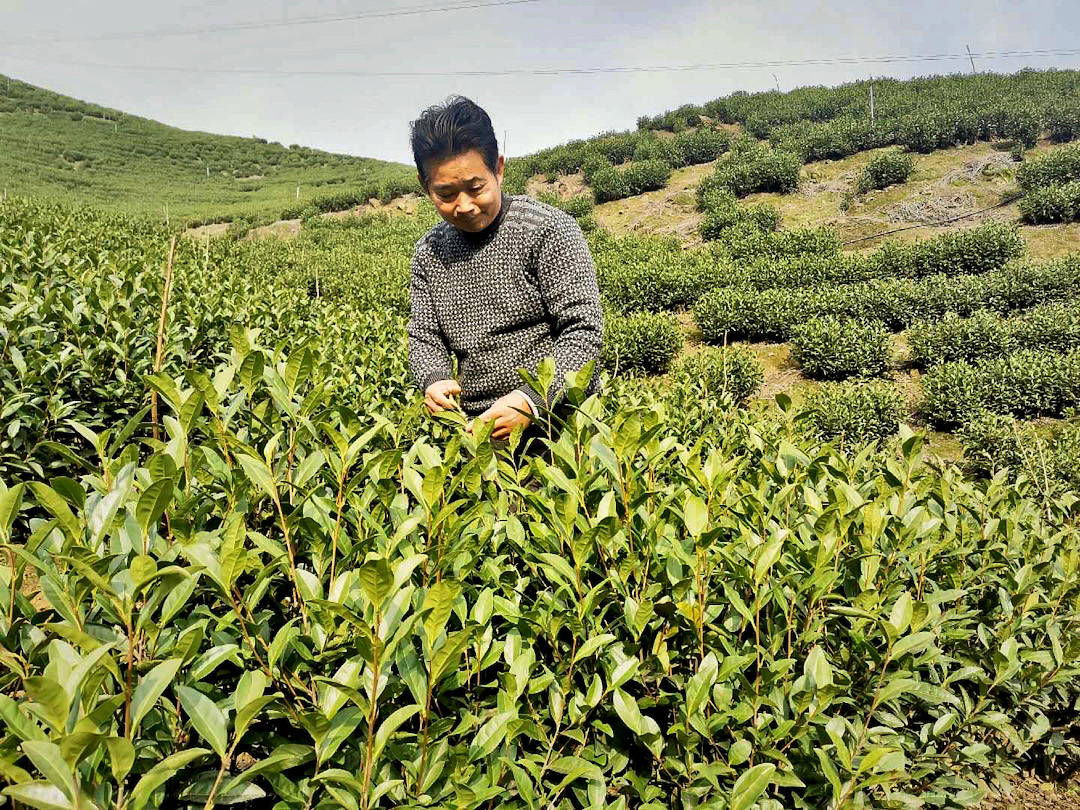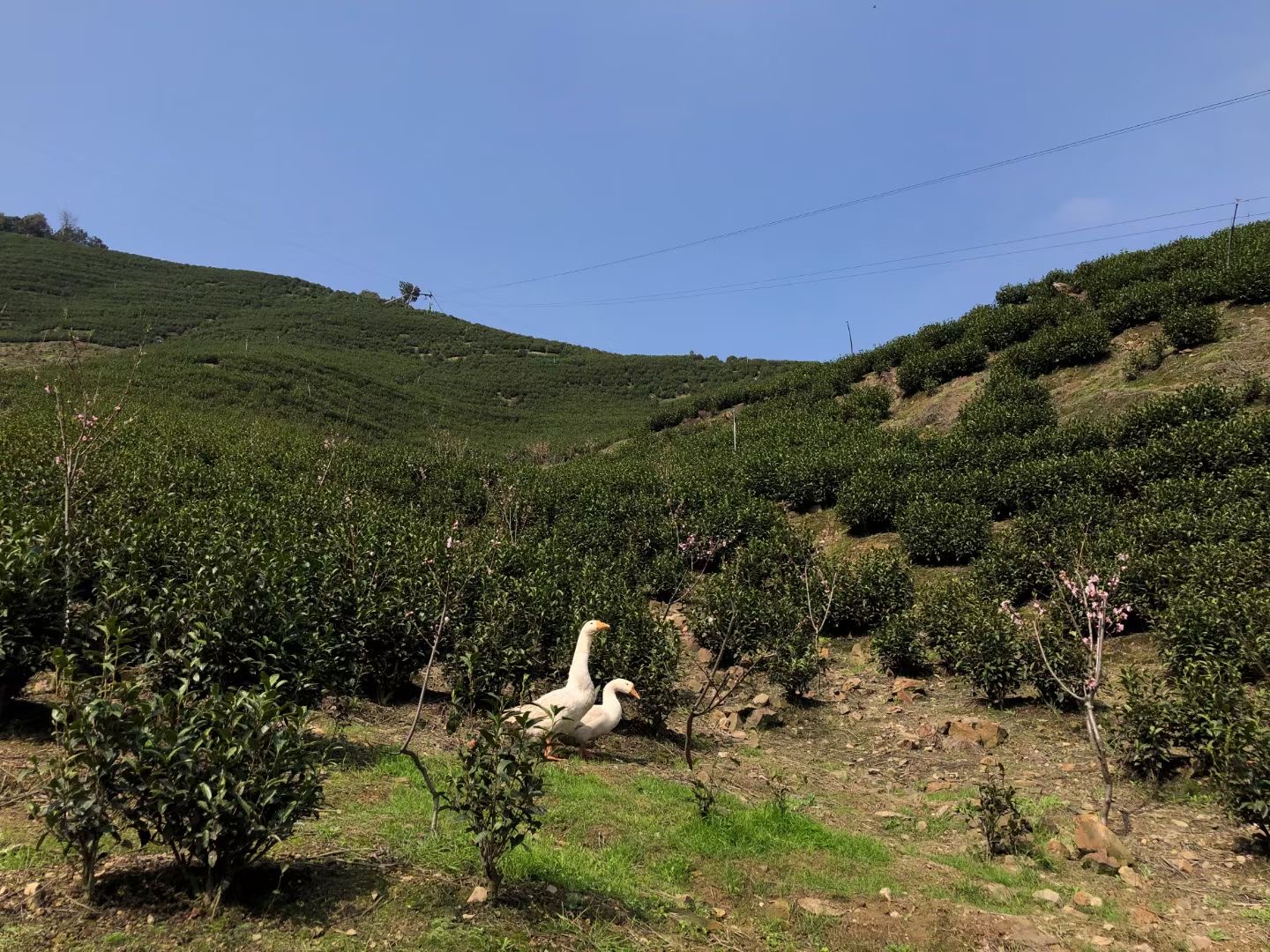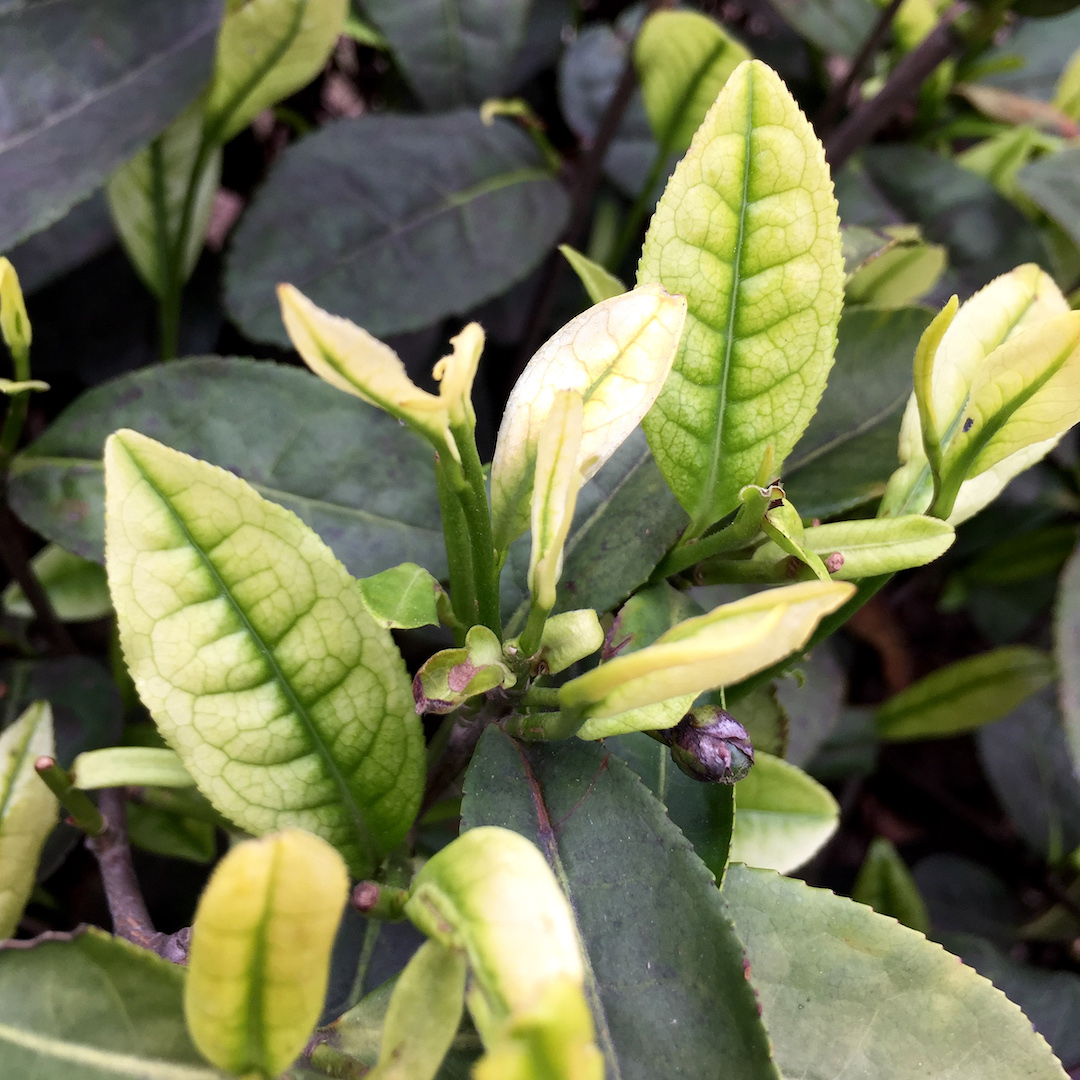
An innovative Anji tea maker
Tea maker Yu Shunhu was born in 1962 in Yuwuli, Yinjiang Village in Anji County in Zhejiang Province. He grew up around his family’s green tea business from a young age, picking tea in the garden with his mother when he was 10. When he was 15, he started working with his mother to learn the traditional techniques to actually process green tea. With the assistance of a tea farmer from Youxi County in Fujian Province, in 2012 he began developing the technology to process Anji’s tea into black tea as well.
The Yu family’s tea garden covers 50 acres of land and is part of a cooperative with 100 other family farmers. Collectively, the co-op includes 100 acres of organic tea gardens.
Though the amino acid-rich leaves of the Anji Baicha plant are particularly attractive to insects, no pesticides are used to kill them. The tea is only harvested in early spring, when the cold still keeps insects at bay. The branches are trimmed back right after harvest, before the end of April, so that there is no new growth for insects to feed on as the weather warms. Each autumn, tea farmers enrich the soil with a mix of fermented rapeseed paste (a byproduct of making canola oil) and government approved organic fertilizers. No herbicides are used, and weeding is done by hand twice a year in May or June and October.

Anji’s claim to fame

The low, rolling hills of Anji County sit on the northwestern edge of Zhejiang Province, at the border with Anhui. Geographically, it is close to the historic origins of many of China’s most famous green teas. Perhaps it was only a matter of time before the county emerged with a famous green tea of its own, crafted from a local tea bush variety.
Over the last two decades, the name of Anji County has become synonymous with Anji Baicha, one of the most cherished and popular green teas in China today. Anji Baicha owes its fame to its strikingly pale leaves and amino acid richness, both natural genetic qualities of its tea bush cultivar, Baiye #1. This pale-leaf variety’s surge in popularity is a testament to the innovation and dynamism of China’s tea industry.
The Baiye #1 cultivar was nurtured into existence from cuttings taken from its mother bush in the early 1980s. The mother bush still grows today in the narrow mountain valley of Hengkengwu in southern Anji County. From this single bush came this new cultivar, and from that new cultivar came the prosperity of the entire county. Today, Baiye #1 is now estimated to make up 15-25% of all the tea bushes growing in Anji.
